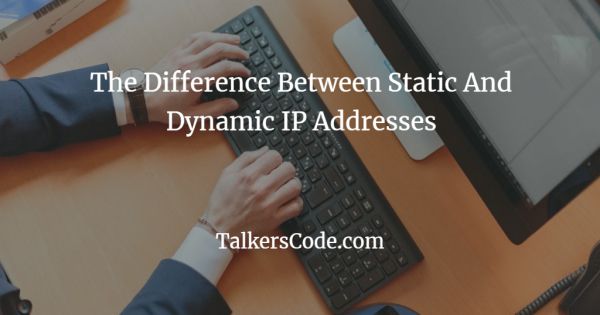An IP address is a unique set of characters such as numbers, symbols, etc., that identifies a computer or device over a network through Internet Protocol.
The Internet Protocol, of course, is the primary communications protocol in the Internet Protocols set that governs the format of data relayed over a network like the Internet.
What Devices Have an IP Address?
Every Internet-connected device has an IP address, usually assigned by your ISP through your router or WiFi or by your cellular network.
Any device you use at home shares the same IP address assigned by your home’s ISP, unless your device at home connects through a different network, like your cellular network.
Static vs Dynamic IP addresses
A dynamic IP address isn’t set in stone. It can change at any time. Most ISPs assign a dynamic IP address because they can be easier and more cost-effective for an ISP to manage. However, you can request your ISP to assign a static IP address for an extra fee.
How to Find Your IP Address
Whether you want to know how to find your static IP address or your dynamic IP address, you can easily do so. Just open your preferred search engine like Google, type "what's my IP address?" and press enter.
You should see your IP address pretty quickly. Cross-check the information with a few other websites just to be sure. Or use a website like ip4.me to check your IP address.
Alternatively, try the following steps:
- On Windows 10, 8, 7, or Vista, open the command prompt on your computer. Type “ipconfig” and press enter. You should see your IP address.
- On Macs, open you’re your terminal app and type “ifoncig” to see your IP address.
Pros and Cons of a Static IP Address
Here are the most significant advantages of having a static IP address.
- It makes it easier to run a server and share your IP address with others trying to locate you, knowing that it will never change.
- There’s more stability with a static IP address. For example, if your server goes down, your customers can reconnect to the same IP address.
- Static IP addresses offer more stability for video communications or teleconferencing software.
Although static IP addresses have several advantages, they can be more expensive, as mentioned above. What’s more, static IP addresses are more hackable. Also, someone tracking you on the Internet will find it easier to document your activity if your IP address doesn’t change.
Should I hide my IP address?
Whether you’re using a static or a dynamic IP address, you should probably hide it to protect yourself from cybercriminals. Bad actors can use your IP address to track you, spy on you, misuse your personal information, frame you for a cybercrime, launch scams, or gain more information about you.
You can use a secure VPN service to mask your IP address with a virtual one. Alternatively, use the TOR browser to be anonymous. But it would help if you avoided free VPNs and proxy servers as they're known to spy on their users.
Recommended Articles
Tags - Increase Website Traffic | Published On - 9 Apr 2023
Tags - Increase Website Traffic | Published On - 9 Apr 2023
Tags - Increase Website Traffic | Published On - 9 Apr 2023
Tags - Make Money Online | Published On - 9 Apr 2023




